5 major discount stores in America, ranked from worst to best by customers
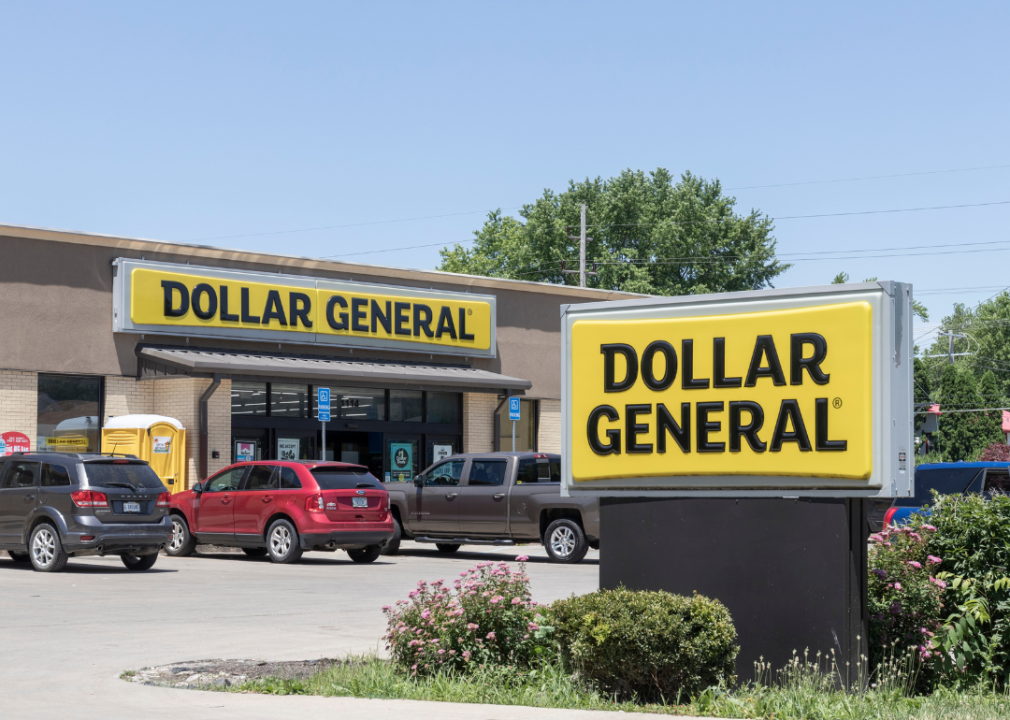
Jonathan Weiss // Shutterstock
5 major discount stores in America, ranked from worst to best by customers
The exterior of a Dollar General store with cars parked outside
Whether you’re someone who enjoys getting lost in the aisles of Target, a person who feels a rush from finding a deeply discounted designer item at TJ Maxx, or a shopper who appreciates the affordability of groceries at Walmart, chances are high you’ve visited a discount store in recent months. According to the 2024 KPMG American Perspectives Survey of 1,100 adults nationwide, 65% of Americans plan to do more discounted shopping in 2024 due to the financial burden of the past few years.
Discount chains and dollar stores became particularly appealing to customers amid the COVID-19 pandemic. TJX, which owns TJ Maxx, Marshalls, and HomeGoods, saw the highest sales in the company’s 45-year history in 2021. But once inflation reached historic highs in 2022, some discount stores raised prices and customers began cutting back, threatening many well-established companies.
The legacy of discount chains in the U.S. dates back more than 60 years. Kmart was the first to launch a discount superstore to set itself apart from the era’s department store landscape, attracting customers with heavily slashed prices, huge inventories, and name brands. The idea garnered a lot of attention: When the first Kmart opened in Michigan in March 1962, there was a line of 4,000 customers waiting for the doors to open. Not long after, the first Target followed suit in Minnesota in May of that year, and then Walmart debuted in Arkansas in July.
Today, those two names—along with companies like Costco and Amazon—rule the retail industry, thanks to their web-based marketplaces and ability to create independent supply chains. In recent years, however, deeply discounted direct shipping upstarts like Temu and Shein have threatened the dominance the aforementioned companies have long held.
Amidst the many changes the retail world has faced since 2020, certain brands have stood out to customers. To see which reigns supreme, Stacker ranked five major discount stores in the U.S. using data from the American Customer Satisfaction Index. Stores are ranked by 2024 customer satisfaction. The stores included are the ones for which the ACSI received enough responses to rank customers’ options. Big box stores like Walmart and Costo were not included.
Read on to learn what customers think of some of the biggest names in the discount business.
You may also like: Credit card reconciliation: How business owners can eliminate inflated costs and wasteful spending when tracking expenses
![]()
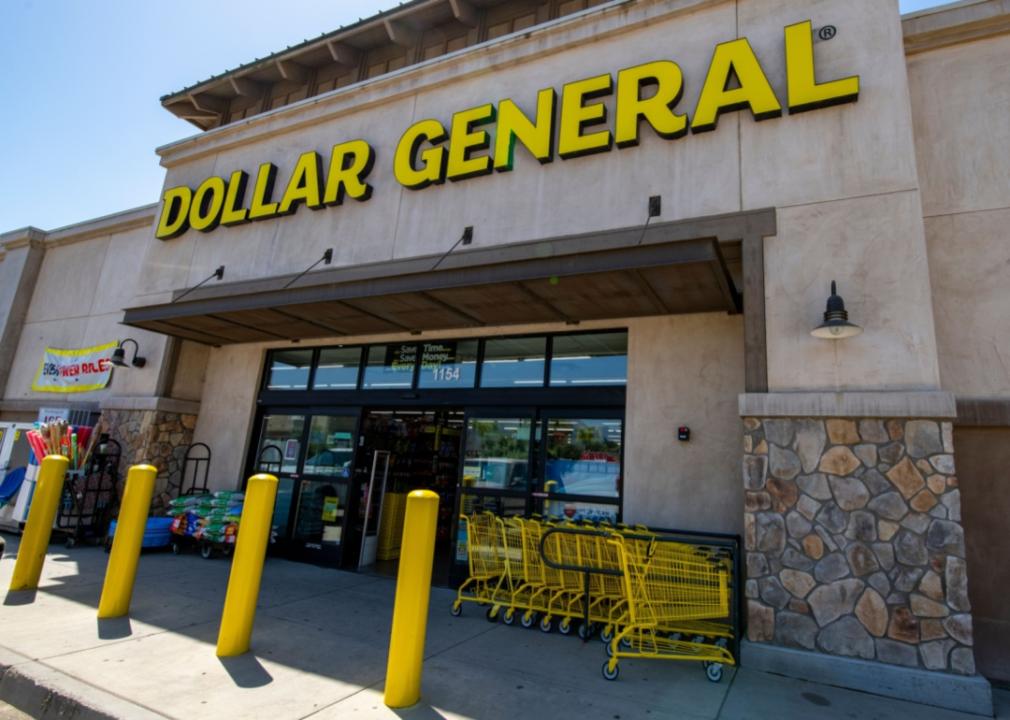
Robert V. Schwemmer // Shutterstock
#5. Dollar General
The exterior of a Dollar General store.
– Customer satisfaction: 72%
– Change from 2023: +3%
Dollar General has more than 20,000 stores across the U.S., selling everything from food to cleaning supplies from both private brands and international ones (like Coca-Cola or Procter & Gamble) at slashed prices. The chain attracts customers with small neighborhood stores designed to simplify shopping, in direct contrast to many discount stores’ warehouse approach.
The company began in Kentucky in 1955 with the goal of selling goods for no more than a dollar. Today, in the wake of record-high inflation rates, that’s not necessarily the case. According to a 2022 report from CNN, about 20% of the merchandise at Dollar General costs $1 or less. However, almost everything is under $10, Business Insider reported in 2023.
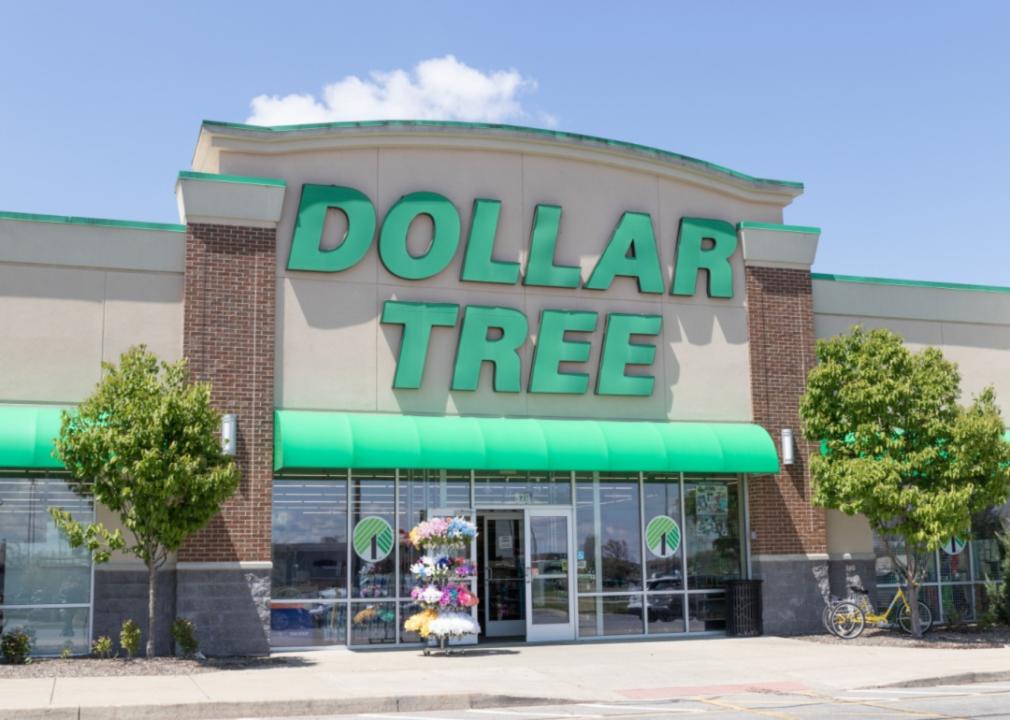
Jonathan Weiss // Shutterstock
#4. Dollar Tree
The outside of a Dollar Tree store.
– Customer satisfaction: 74%
– Change from 2023: +4%
The parent company Dollar Tree owns Dollar Tree, Family Dollar, and a variety of combination stores in over 16,000 locations across the U.S. and Canada. It appeals to customers with its “thrill-of-the-hunt” atmosphere, where shoppers can find new and unique toys, decor, and other novelties that rotate frequently.
Recently, Dollar Tree—which got its start in Norfolk, Virginia, in 1953—has come under fire for raising its prices amid inflation. In 2021, $1.25 became the minimum price for the chain. In March 2024, the company announced that the minimum would go up to $1.50, with the maximum also increasing from $5 to $7. After disappointing sales in 2024, Dollar Tree also revealed it would be closing about 1,000 stores over the next several years, most of which would be Family Dollar locations, which have seen an increase in shoplifting, leading to losses.
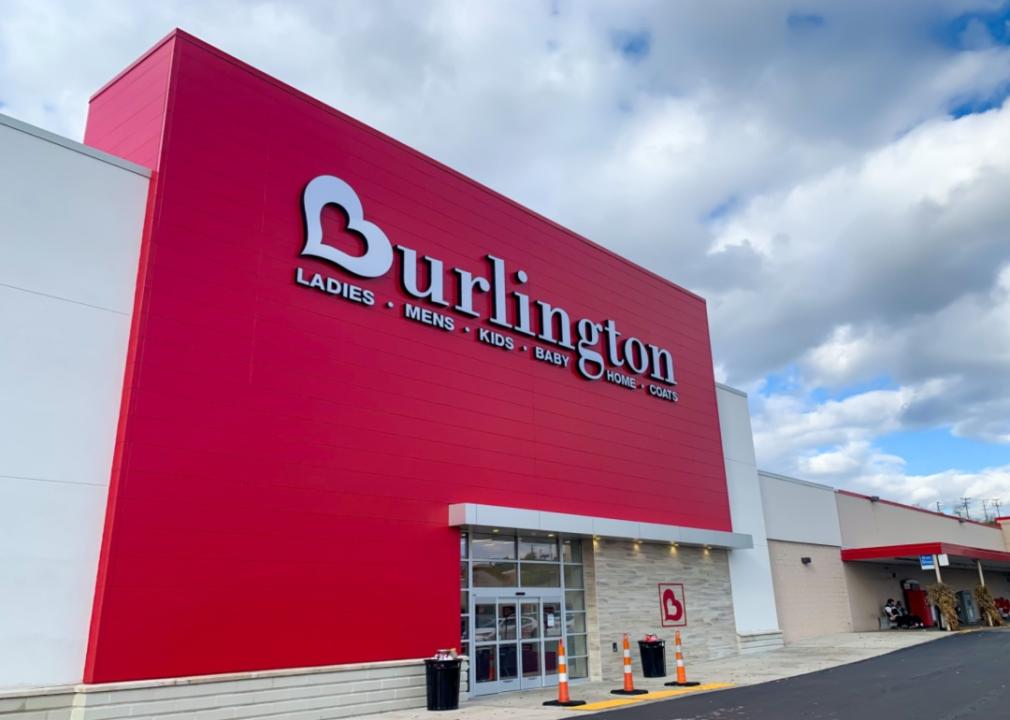
gg5795 // Shutterstock
#3. Burlington
The front of a Burlington store.
– Customer satisfaction: 76%
– Change from 2023: +3%
The Burlington Company, which operates the Burlington Coat Factory, began in 1972 as a single store attached to a factory in Burlington, New Jersey, specializing in selling coats at low prices. Today, the company has more than 1,000 stores across the country, and though it’s still known for its large selection of outerwear, it also sells clothing for all ages, accessories, and home goods. (You may remember Burlington’s “We’re more than great coats” jingle from the 1990s.)
More than half a century later, Burlington has maintained its large warehouse setting, emphasizing the company’s discounts, which can be as much as 60%. Throughout 2024 and early 2025, Burlington plans to open 100 new stores.
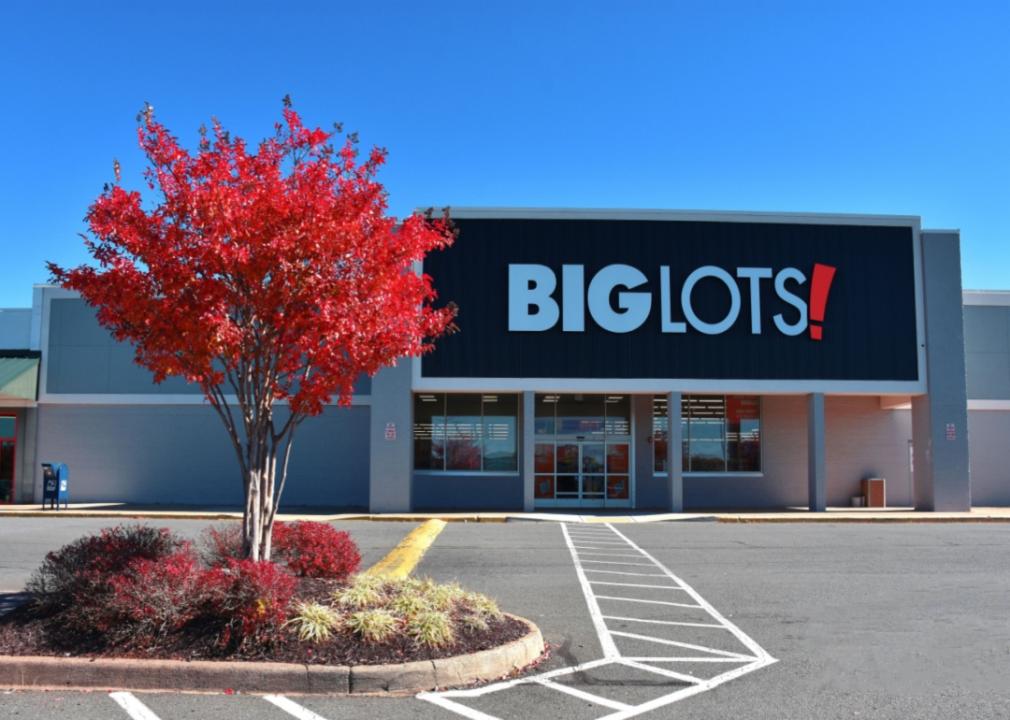
refrina // Shutterstock
#2. Big Lots
A Big Lots store seen from the parking lot.
– Customer satisfaction: 78%
– Change from 2023: +7%
Big Lots started in 1967 as Consolidated International, Inc., offering extremely low prices on vehicles and auto parts. The company has expanded to sell furniture, electronics, home decor, and a variety of other products at discounted prices. It offers a “treasure-hunt atmosphere,” in which customers can sort through a broad array of products to find one-of-a-kind items.
In recent years, Big Lots has faced some challenges, though. The company closed 33 underperforming stores in 2023. It plans to open three new stores in 2024 but will close an undisclosed number. Unconfirmed reports as of July 2024 claim around 150 Big Lots stores are closing.
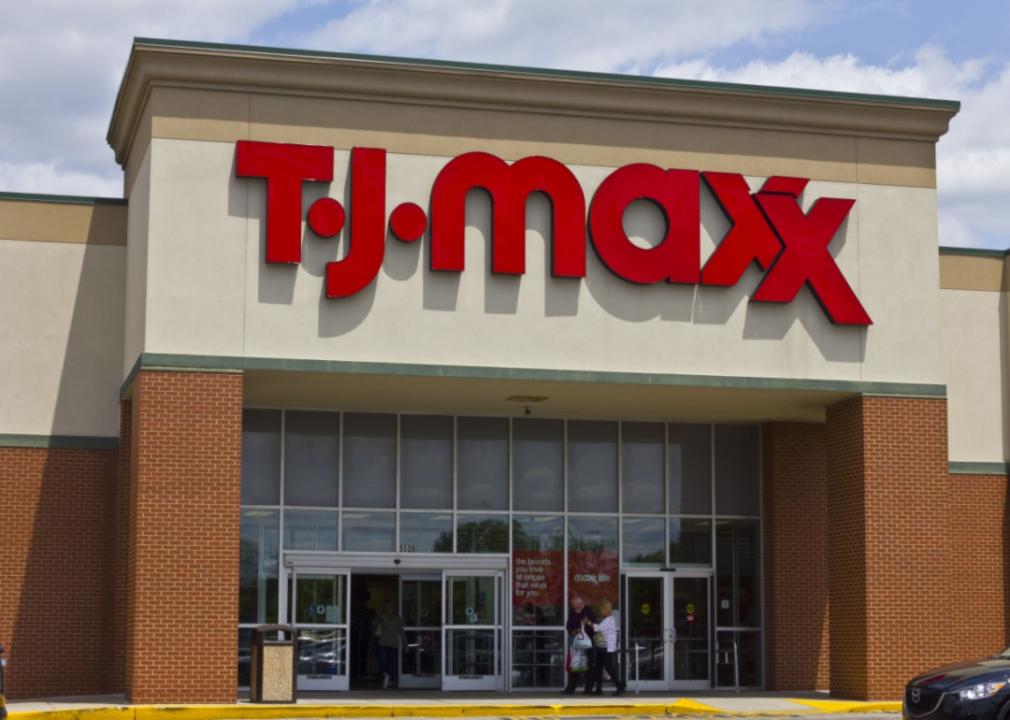
Jonathan Weiss // Shutterstock
#1. TJX (Marshalls, TJ Maxx)
The front of a TJ Maxx store with two people walking out with bags in their hands.
– Customer satisfaction: 79%
– Change from 2023: +3%
The TJX company and its brands, TJ Maxx, Marshalls, and HomeGoods, sell a wide array of items such as clothing, household wares, and beauty supplies across its nearly 5,000 stores in the U.S. and eight other countries. The chains appeal to customers because they provide known brands and designer labels at 20 to 60% off full price, with a frequently rotating selection.
The company began in 1976 and is notable for attracting customers across a broad spectrum of incomes and age brackets. TJ Maxx stories, in particular, have maintained their appeal, especially among younger customers, thanks to influencer shopping hauls on TikTok and name drops during Bama Rush OOTDs (i.e., videos of aspiring University of Alabama sorority girls sharing where they bought their outfits for Rush Week).
Data reporting by Rob Powell. Story editing by Jaimie Etkin. Copy editing by Kristen Wegrzyn. Photo selection by Lacy Kerrick.
You may also like: 11 ways to secure startup funding for your business